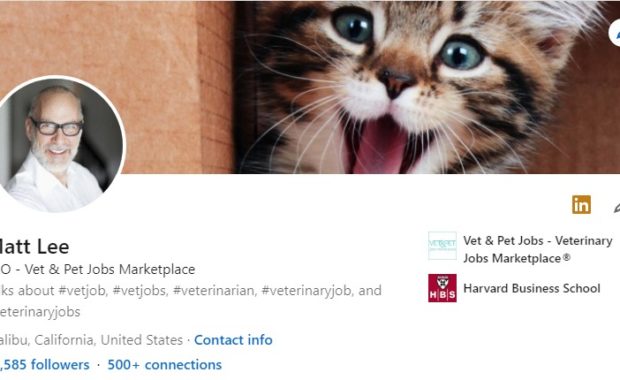As the demand for Locum Relief staff has boomed in recent years, so has the number of vets eager to capitalise on the potential monetary and work-life balance perks of such roles. As a keen and savvy Relief Vet, you will want to ensure that you attract your pick of the available work on offer. Here are the top five professional traits that will help you offer gold-standard, in-demand Locum Relief veterinary services…
Facebook & LinkedIn Veterinary Jobs Groups
Network with the 31,000+ Veterinarians, Veterinary Nurses, Veterinary Technicians, Practice Managers, and Employer members of our regional Facebook and LinkedIn groups. You can browse Veterinary Jobs, share your Locum Relief availability and even post great permanent Veterinary Jobs and Locum Relief work for free and in a more structured way – open to job seekers AND employers – feel free to join any Regional Group that may be of interest. Or join the 102,000+ Veterinary Professionals that Follow or Like us on LinkedIn, Facebook, Instagram, and more, and be among the first to see our latest veterinary jobs as soon as they are published…
The pursuit of Appiness: 6 Must-Have Apps for Locum Relief Veterinary Professionals
Remember how Charlie’s Angels received practical assistance from Bosley, whilst Batman had Alfred managing his personal life? As a highly in-demand locum relief veterinary professional, you too will benefit from some background support to achieve your full medical superhero potential. Unless you also happen to be a multi-millionaire who can afford a butler, we’d suggest utilizing these six super helpful apps to help you stay focused, calm, and collected both on and off the job…
How To Achieve a Low-Stress Locum Relief Life
Locum relief work can alleviate some of the stressors associated with permanent positions, whilst still allowing veterinarians, nurses and vet techs to perform the clinical work they enjoy. Many veterinarians, nurses and vet techs have considered moving to locum relief work to experience all the financial and lifestyle benefits it can potentially offer. If you’re ready to make the leap to locum work, check out our practical tips for achieving the ultimate “Low-stress, Fear-Free” locum relief lifestyle – no Feliway required!…
Veterinary Student Debt: the Good, the Bad & Some Answers
So you have successfully started that professional veterinary career you worked so hard to achieve. You expected it would be a tough road getting there, but you persisted and you’ve made it and you are really enjoying being a practicing Veterinary Professional – Veterinarian, Vet Tech, Veterinary Nurse, and more. What you hadn’t anticipated was a pandemic and how it may impact your debt situation – no one could have. You are not alone. And as student loans are now the second-highest consumer debt category almost worldwide, the first being mortgages, here are some essential tips to help you successfully manage your veterinary student debt in these challenging times…
5 Years as a Vet…now what?
As you approach five years into your career as a veterinarian, it’s time to step back and do some reflection. Take a few moments to carefully consider what you have learned, how your job has impacted your worldview, and how you’ve managed to balance your work responsibilities with social or family obligations. You probably don’t need to be convinced of the importance of self-evaluation. After all, you have been pushing yourself since your pre-vet days. Even as a practicing veterinarian, you likely work hard to keep up with evolving technology and techniques. You may put in long and irregular hours, either at the clinic or at home with your nose in reference books and veterinary journals, all in the continued quest for personal and professional development. Five years into your career, you’ve earned your chops and gained confidence in your work. Now it’s time to take a step back and take a big-picture view. What’s ahead for your career? What are your goals in your personal life? Where do you see yourself five years from now?
5 Essential Skills for Locum Relief Veterinary Professionals
Locum relief veterinarians are valuable assets to clinics who need a little extra support or want to make sure their patients have access to quality care while they are away from the clinic. Locum veterinary professionals need the same foundational skills as any other veterinarian; however, there are certain attributes and skills locum veterinarians should be particularly good at. A great veterinarian may not make a great locum veterinarian, so what exactly does it take to be successful? There are certainly more than these 5, but if you have a good handle on these, any clinic would be happy to have you pitching in to support their team…
How to Polish Your LinkedIn Profile
Like Liam Neeson in Taken, you have a very particular set of skills, acquired over your career, but unlike Liam, your skills make you a joy for employers and recruiters. But when they look for you on LinkedIn, as 77 per cent of recruiters and employers do, you want them to find you and be impressed enough to reach out and connect. And when they do find you (and they will if you follow this advice), they will employ you. Apply these tips and you will be well on the way to your initial interview…
Veterinary professionals all Love a great Story, learn Why and How
In this era of unusual demand and supply for Veterinary team members, if you want the best then it’s time to become a great storyteller. We’re not talking about fibs, stretching the truth or outright lies. What we do mean is that in a market where demand clearly is outstripping supply (at a ratio of more than 1:1) Veterinarians, Veterinary Technicians, Veterinary Nurses and just about all Veterinary Professionals are being highly selective about choosing their next career step…and it starts with your Message. You have just a few seconds…That’s it. In today’s attention-span-challenged world, if your Job Campaign does not attract, engage and draw readers or viewers into your story in the first few seconds then your audience will just move on…and, having captured their attention, you must keep their interest right to the very end. As for you Job Seekers, knowing your potential new employer’s compelling story is essential to making the right decision. Both of you will find out why and how here…










